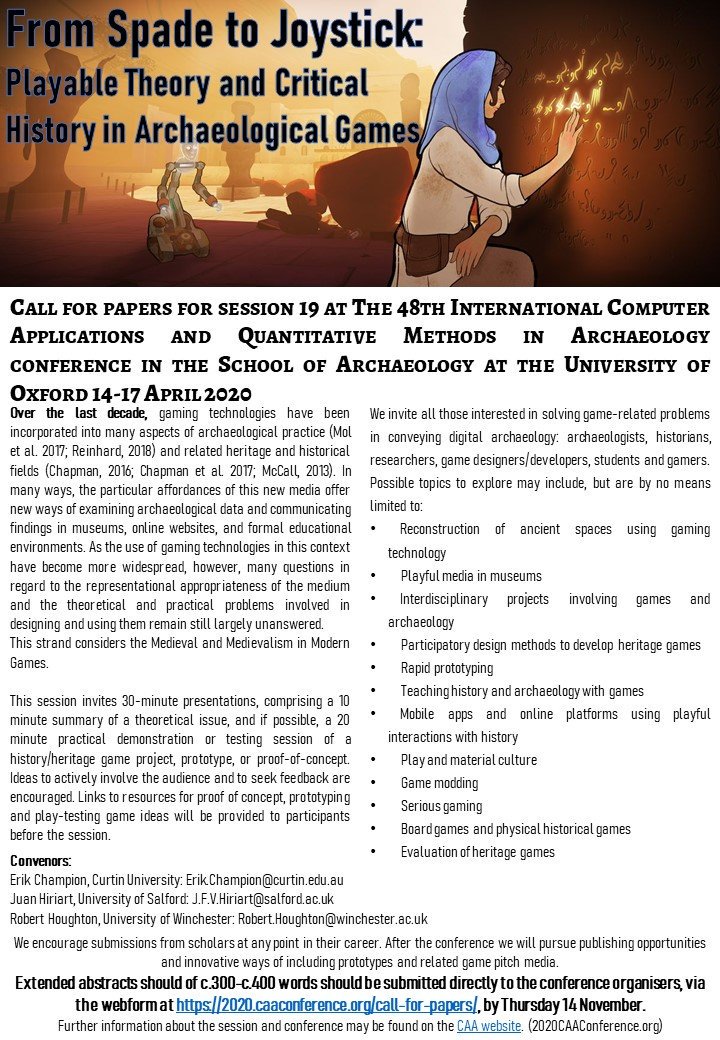Dear CAA member or ex-member, If you are interested in running a workshop on Tuesday, 14th April before the CAA 2020 conference starts, please email us at caa2020@arch.ox.ac.uk. Please provide us with the title of the workshop, a short (250 words or less) abstract of the workshop and what attendees will learn by attending it. Please also include a list of any equipment you might need (i.e. LCD projector, etc.) to successfully deliver your workshop. As the organisers will not provide computers for the attendees, please do remember to list all the items that will be required for participation (laptop, notepad, software). Please also indicate whether your workshop will be a full day or half day session, and whether you wished to set maximum numbers for attendees. Please submit your abstract by 12th February 2020 (midnight). Please contact the organisers at caa2020@arch.ox.ac.uk for clarification or further inquiries.

